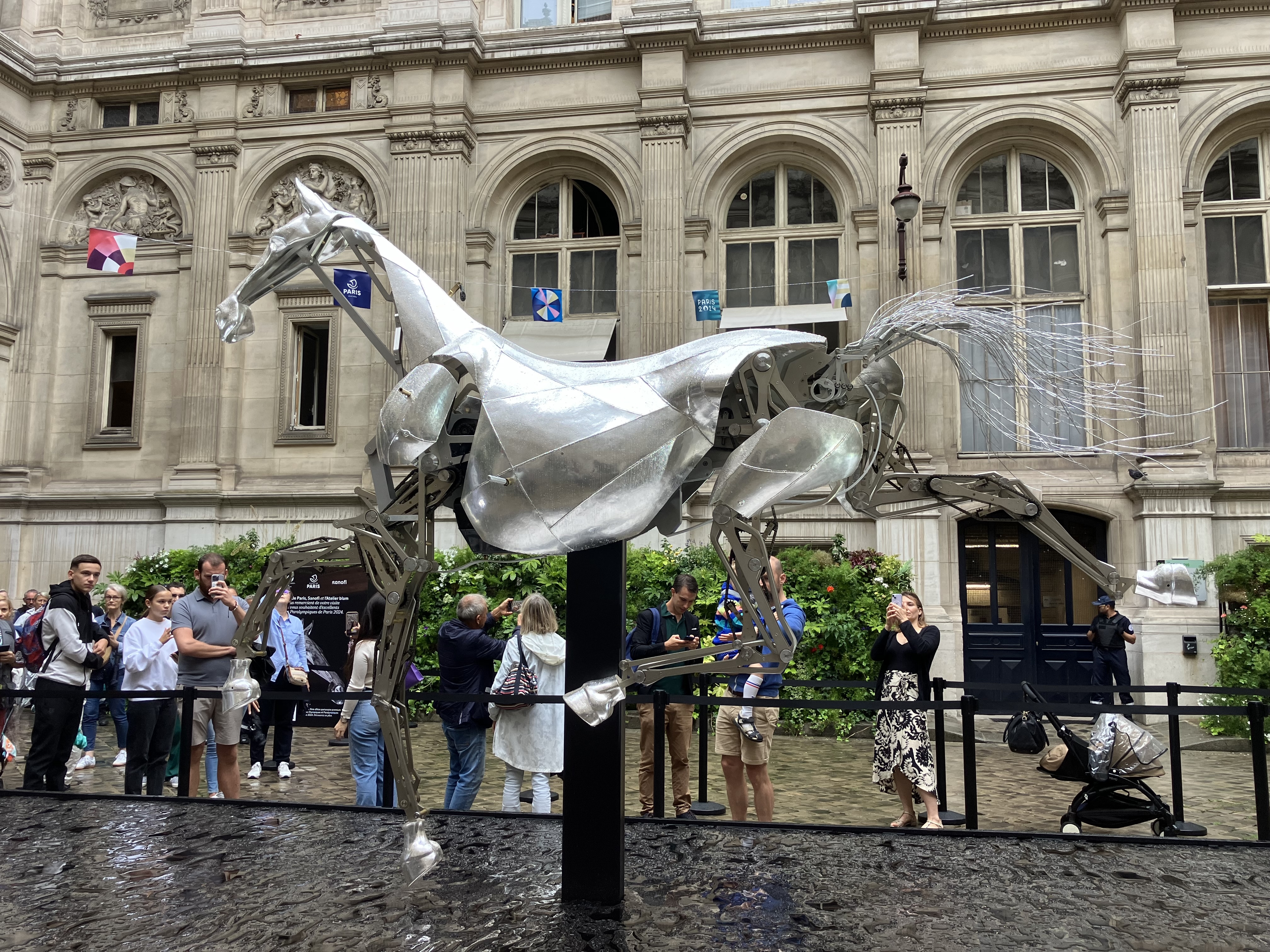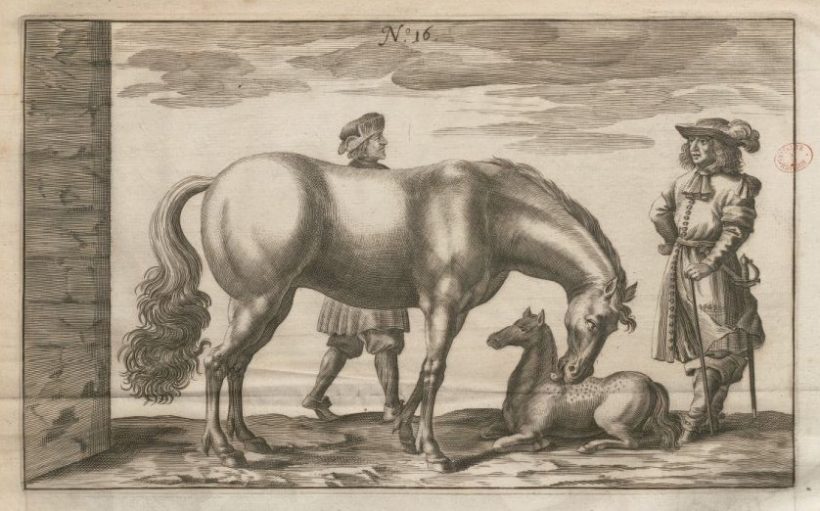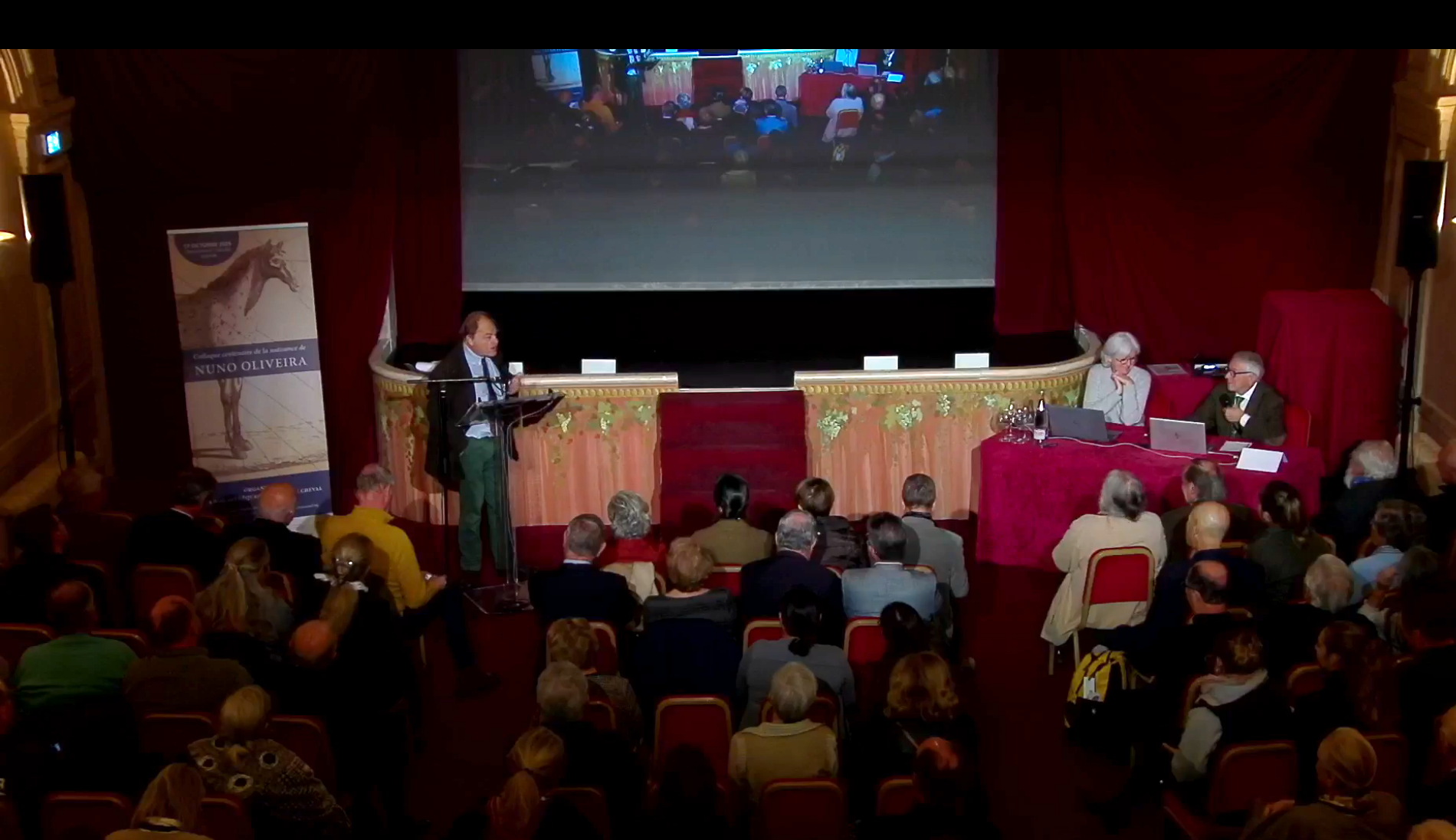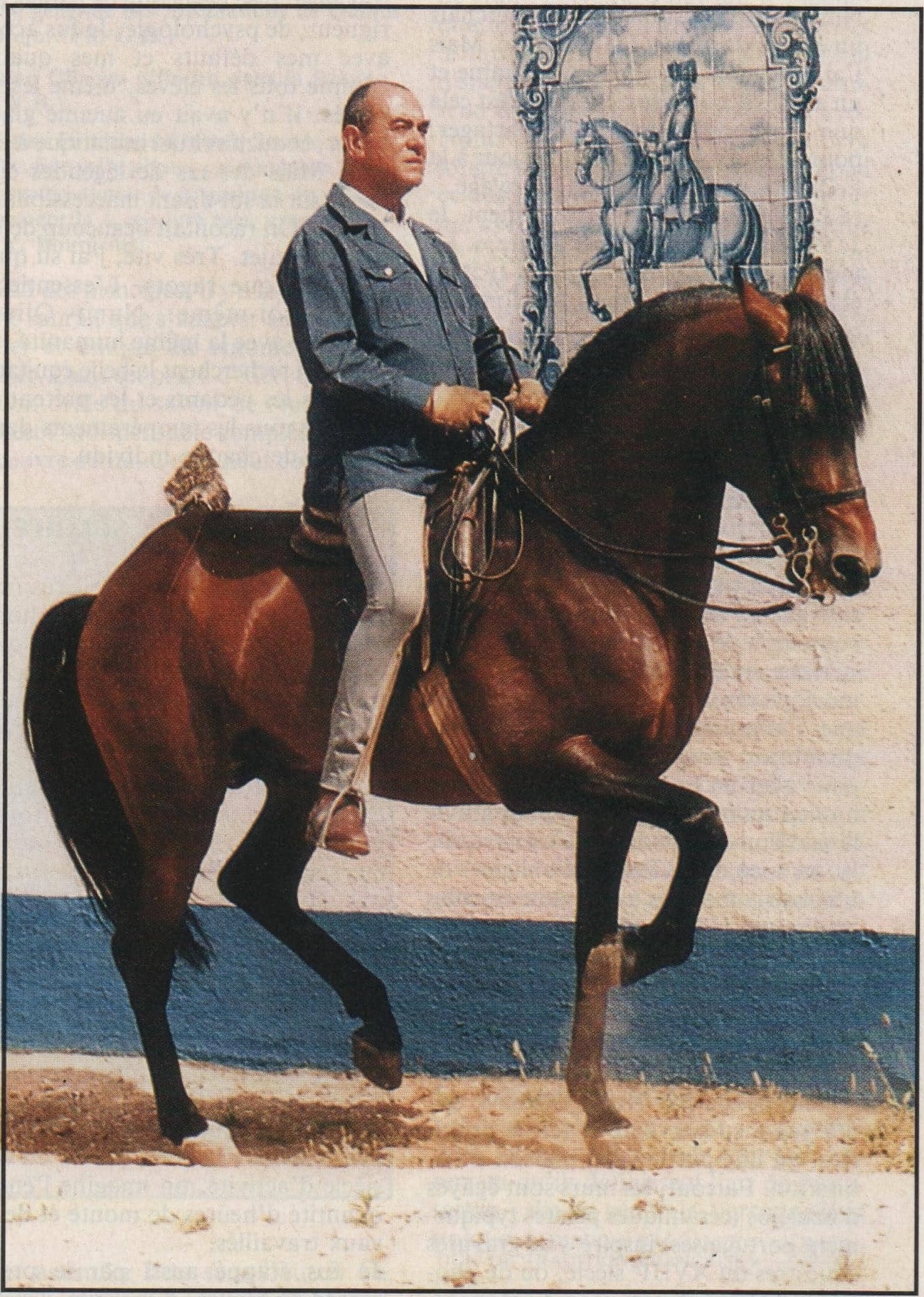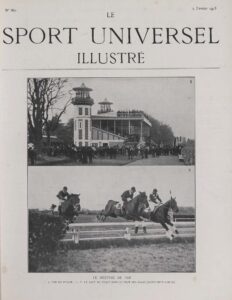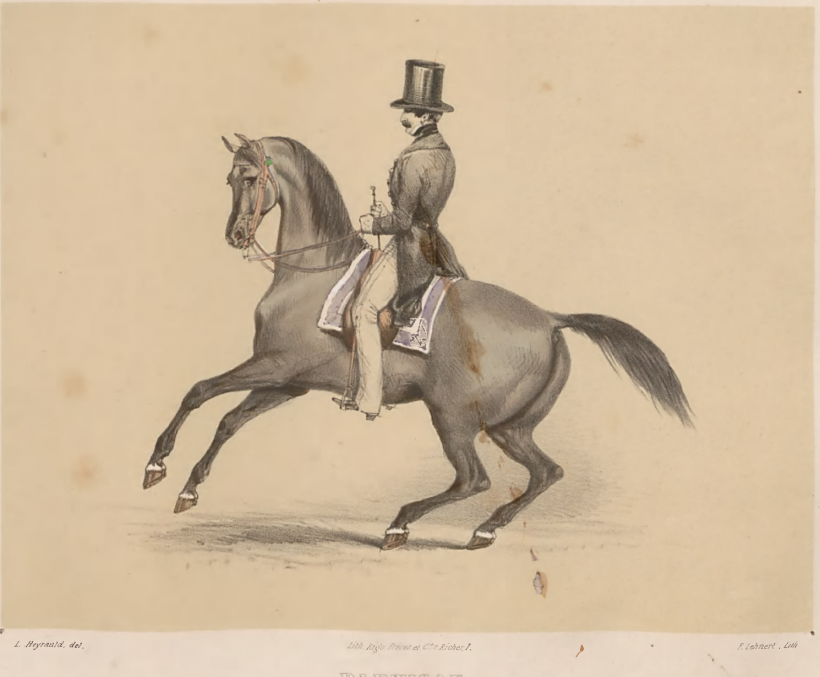
Baucher would have been 227 years old, but "The Method" hasn't aged a day
The colloquium organised on 14 March 2023 to mark the 150th anniversary of François Baucher's death by the Comité Régional d'Equitation d'Ile-de-France (CREIF), chaired by Emmanuel Feltesse, in the mess hall of the Célestins barracks (Garde Républicaine) in Paris, thanks to the support of Colonel Gabriel Cortès, gave all those privileged enough to attend a very good time that went beyond the shared passion for the equestrian and his method.
The programme, concocted for the most part by Didier Bigot, Chairman of the CRE's Culture Commission, and led by the same enthusiast for equestrian culture, was opened by Serge Lecomte, President of the FFE, which testifies to the Federation's growing interest in culture and in passing on equestrian knowledge to the next generation of riders.
Juan Diego Garcia Trevijano was one of the many fascinating speakers.
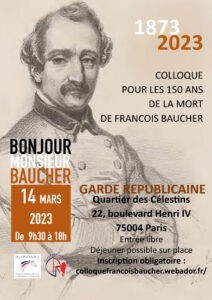
The title of the day could have been "Baucher, his life, his work" or even "Baucher, the discourse of method"... Yes, the horseman, the writer, left a real mark, still alive and much claimed today. No, he did not leave anyone indifferent.
It didn't matter whether you were well-informed about François Baucher's career, his work, the development of his technique and the writings that resulted from it, or whether you were totally uninformed, which is fortunate on this type of occasion, because the joy of learning is intact. The variety of the talks, as shown in the programme published below, were documented and technical (Patrice Franchet d'Espérey, Alain Francqueville), contextual (Guillaume Henry, Bertrand-Pierre Galley), factual (Caroline Hodak, André Viau) (Caroline Hodak, André Viau), embodied (Jean-Pierre Tuloup), intimate (Florence Donard), spontaneous (Lucien Gruss) meant that the day, although busy, flew by like a racehorse escaping from its grasp, which was enough to make Baucher turn over in his grave!
This variety of genres and presentations, as well as the personalities who led or attended this day, which could have seemed a little long, or even disjointed at times, actually made it enjoyable, as it facilitated exchanges and encounters during the down times.
Juan Diego Garcia Trevijano's talk, the last of the day, was, in the literal sense of the word, the high point, as it ended to the music of Partisan, the famous mount of the Versailles-born horseman.
Trevijano was the only foreign speaker at the conference. We could say 'international', because although he lives both in Spain and Portugal, he also teaches in France, Germany, Italy and even the Philippines.
“Riding School”
As a teacher and a Bauchériste if ever there was one, it was also an opportunity for us, on a more personal level, to meet up in Paris with the sportsman and rider who, at the age of 23, took part in the 1988 Olympic Games in Seoul as part of the Spanish show jumping team (8th). A rider who has also competed in international dressage events, which to say the least testifies to his eclecticism, open-mindedness and proven equestrian talent.
Trevijano opened his speech with a few videos of “horse shows and school riding presentations, some with the same horse ”. You read that right: he talks about “riding school” and then says straight away: "I use this term deliberately to make the distinction with contemporary dressage competitions, which unfortunately, with rare exceptions, are no longer a reflection of this riding skills; academic riding, whose boundaries were largely pushed back by the innovative Baucher. [...] There is no longer a serious horseman today who would intend to teach without having a thorough knowledge of the Baucher method: “he would appear to be like an astronomer who refused to take account of Newton's discoveries, and would stick to the system of Ptolomeus and Copernicus. - Baron de Curnieu."
He goes on to comment on the videos scrolling across the screen: "In my school work we saw high school and fantasy tunes, as Faverot described them. Especially the airs based on 'jambettes' are spectacular, like this Spanish step, or the trot or canter on three legs."
The fifty-year-old professor insisted: "The relationship between horse and rider has become very intimate and the rider can afford the luxury of improvising new airs as his imagination dictates. When the horse reaches this degree of training, it is no longer a question of orders but of requests that are barely expressed, and to which the animal hastens to respond as if it were proud to have a friend on its back who gives it sufficient freedom to carry it with grace and majesty. This is only possible with absolute lightness. - Don Diogo de Bragance, in L'Équitation de Tradition Française."
Talking about lightness
Who can do more can do less, that's undeniable, which is why for Trevijano, who was repeating what other speakers at the colloquium had said before him, Baucher, by performing at the circus at a time when it was of enormous importance in Parisian society and by creating all sorts of combinations with these new airs, was offering a work of unprecedented richness. His only ambition was to be useful to the cavalry of the time. A subject that pitted him against the Comte d'Aure, as Bertrand-Pierre Galley had developed during the morning. He insisted that Baucher refused any kind of material or honorary recognition. "That is the greatness of man 'The greatness of man is to prefer what he believes to be the truth to himself' - Victor Cousin, Philosophy in the 19th Century."
"That's Baucher, someone passionate and devoted to his art." And to quote the horseman: "I don't know if it's pride, but when I feel my horse bending to my every will, responding without any resistance to my thoughts, executing with perfect grace and lightness all the movements I ask of him, I am so happy that much less than feeling affected by the clamour of the envious and the ingratitude of the plagiarists I have only one desire, that of sharing my happiness with them".
According to our young Spanish lecturer, "Baucher is referring here to his latest discoveries based on the principle of the separation of aids or, more precisely, the non-opposition of 'hands without legs, legs without hands'. He is enthusiastic. How can we not study it in depth if it is thanks to its application that we can achieve the ideal, the balance of the first kind. According to him, in the presentations that brought him fame with his best horses, he obtained moments of great lightness but it was not constant so he was not completely satisfied. We know that "Lightness is the mark of high equitation and gives the equestrian who practises it the true character of his talent". - General L'Hotte."
And to quote Baucher again, speaking to L'Hotte, he said: "It will be the same for you as for me, after having tackled all the difficulties of the art, you will find your pleasure in perfect lightness, no matter how simple the movements". And so it is. "Speed, jumping, hounding, success in public etc... all this may bring more excitement, more enthusiasm, but nothing can equal the real, complete charm, pure of any feeling alien to riding, that lightness brings. It is the supreme charm to which nothing can compare." - Beudant ."
In search of the ideal
And Trevijano enthuses: "That's what I find fascinating, this quest for the ideal, this quest for beauty, in short, art; and that's why we're here, 150 years on, to pay tribute to a great artist, the greatest equestrian artist of all time. Why is art fascinating? Precisely because "The study of beauty is a duel in which the artist cries out in fright before being defeated" - Baudelaire or, "I may lack the strength to get where I want to go, but I know perfectly well what I want" - Verdi. Or, "To act, to create, to fight against the facts, to overcome them or be overcome by them, all human joy and health are there... I'd rather die of passion than die of boredom" - Zola. That's the romantic spirit, the romantic state of mind. In the end, to be a Baucherist is to be romantic. "Whoever says romanticism says modern art, that is to say intimacy, spirituality, colour, aspiration towards the infinite, expressed by all the means that the arts contain". - Baudelaire ."
Bauchérisme corresponds perfectly to the ideological trend of the time, characterised by innovation, a break with tradition, which is classicism, and therefore romanticism. "The Baucherist group, led by the Duke of Orléans, was joined by a number of young and lively intellectuals, including the painter Delacroix, the writers Eugène Sue and Théophile Gauthier, Got, from the Comédie Française, the musician, composer and journalist Léon Gatayes and the poet Lamartine"- Don Diogo de Bragance, “L'Équitation de Tradition Française ” .
And poetry too!
All passionate artists! There was a movement of creation and stimulation between them, a desire to innovate and move forward. " ‘Ignorance and jealousy join hands to hinder the progress of art, which, stationary at first, soon becomes retrograde’. - Baucher. ”
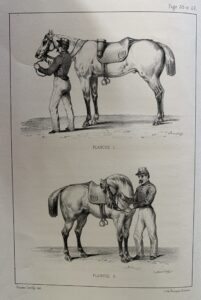
This is because, “ ‘Study and examination alone can give that liberality of judgement without which it is impossible to acquire new enlightenment or to retain what one has, for one submits to received ideas, not as to truths but as to power, and this is how human reason becomes accustomed to servitude in the very field of literature and philosophy’ - Madame de Staël .” And the same goes for horse riding, of course. "This is what distinguished Baucher from his contemporaries in the equestrian world; what made him a schoolmaster. This is what I do personally as a Baucherist, because "to be a Baucherist is to be a perpetual seeker" - Decarpentry . Trying to find, from the unshakeable principles of this school, the best means to reach the goal: perfect balance from which comes constant lightness; that's what's exciting, it's such a vast field that goes to infinity but, I repeat, within the principles of this school because it opened the way."
"Finally, as far as prospects are concerned, I join unconditionally with Raabe, from whom I quote a passage from his Examen du Bauchérisme reduced to its simplest expression by Rul : ‘we are animated by no other desire than to be useful to the cavalry (to horse riding) may these reasons draw the attention of intelligent men, friends of progress, to the useful discoveries of our esteemed teacher and friend Monsieur Baucher, the man of genius, the true prince of equestrian science in the nineteenth century. We believe that no method is preferable to the Baucher school and that is why, in the interests of our country (of horse riding) we are making every effort to make the scientific problem of this school intelligible to everyone from now on’ ". With that, Juan Diego Garcia Trevijano ended his speech by inviting everyone to listen to a few minutes of the music that accompanied the work of Partisan, Baucher's best horse, written by Paul Cuzent, horseman and composer.
Xavier Libbrecht
For more information:
- Videos of the event, part 1 and part 2 (Creif Youtube channel)
- Baucher's bibliography
- His biography
